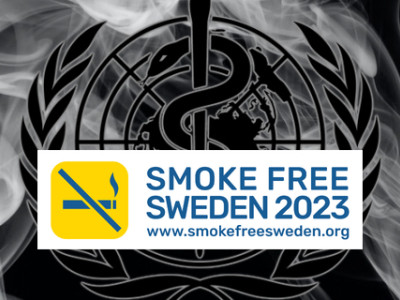Dr Notley leads the Addiction Research Group at UEA’s Norwich Medical School and researches tobacco smoking cessation and electronic cigarette use. She also leads a Neonatal unit Smoking Cessation intervention development study.
She says that ex-smokers should resist the urge to relapse, given the likely higher COVID-19 risks for smokers, adding that those who have switched to vaping should not return to smoking. Dr Notley thinks that those who still smoke should be encouraged to switch to vaping.
Dr Notley says that pregnant women in particular should not smoke. And parents should not smoke in the home around children while schools and nurseries are closed during lockdown.
A major hurdle to reducing tobacco-related harm is the fact that vape shops have been forced to close and Dr Notley thinks this could seriously impact people’s health.
She said: “Since completely switching from smoking to vaping improves cardiovascular and respiratory conditions, smokers who switch to vaping might be expected to have a better prognosis if infected by COVID-19.”
“E-cigarettes are the most popular consumer option for stop smoking support, and they are effective. People should be encouraged to switch to vaping rather than continuing to smoke tobacco.”
“The spread of COVID-19 has been deeply concerning and raises particular questions for smokers, ex-smokers and people choosing to use less harmful alternatives to smoking, such as e-cigarettes. Clear evidence on the relationship between smoking and the progression to severe conditions of COVID-19 is lacking, but beginning to emerge.”
“We know that vulnerable groups, such as those with health conditions including cardiovascular and respiratory disease and diabetes, are more likely to be smokers or ex-smokers. This might suggest that smokers are more at risk of suffering from severe reactions to the COVID-19 virus. Given this, it is more important than ever that people are supported to quit smoking.”
“Pregnant women are classified as a vulnerable group, especially at risk of exposure to the COVID-19 virus, both for their own health and because we do not know what impact exposure to the virus may have on the developing foetus. As smoking further increases vulnerability, it is imperative that pregnant smokers are supported to quit smoking,” she added.
“The stop smoking service can offer support to pregnant women throughout pregnancy and is offering remote appointments as well as nicotine replacement therapy. Alternatively, e-cigarettes are an option that pregnant women might consider to help them quit smoking.”
“For ex-smokers, particularly those who have recently quit, there may be an increased risk of smoking relapse, as people are stressed and anxious in the light of the COVID-19 situation, and stress is correlated with smoking relapse. It is important that ex-smokers are encouraged to remain smoke free.”
“Similarly, vulnerable groups, including pregnant women who quit smoking during pregnancy, may be at increased risk of relapse as they may feel even more stressed and isolated after the birth of their baby than under usual conditions where social distancing is not enforced. Postpartum support encouraging women to stay smoke free is especially important during the COVID-19 outbreak.”
“There is no evidence that vaping increases the risk of infection or progression to severe conditions of COVID-19. Vapers with a long previous smoking history could exhibit conditions seen in vulnerable patients. However, this would not be an effect of vaping but of previous smoking.”
“There is also a concern that as people are self-isolating in their homes, children and non-smokers may be at increased risk of second-hand smoke exposure if living with a smoker. Second-hand smoke exposure poses a significant risk to health. Smokers should be encouraged to quit or switch to vaping in order to reduce others exposure to second-hand smoke.”
“It is concerning that vape shops have closed during the current societal lockdown situation. People who have stopped smoking and switched to vaping can still access the stop smoking service for support, and can still purchase e liquid and vaping consumables online, without having to come into contact with other people. There are also some excellent online forums that can offer support and advice to vapers during the time when vape shops are closed.”
Related:
- Dr Caitlin Notley, Twitter – [link]
- Addiction Research Group at UEA’s Norwich Medical School – [link]
Dave Cross
Journalist at POTVDave is a freelance writer; with articles on music, motorbikes, football, pop-science, vaping and tobacco harm reduction in Sounds, Melody Maker, UBG, AWoL, Bike, When Saturday Comes, Vape News Magazine, and syndicated across the Johnston Press group. He was published in an anthology of “Greatest Football Writing”, but still believes this was a mistake. Dave contributes sketches to comedy shows and used to co-host a radio sketch show. He’s worked with numerous vape companies to develop content for their websites.
Join the discussion
Harm Reduction For The Rich
The United Kingdom risks becoming a harm reduction country only for the wealthy, according to Michael Landl of the World Vapers’ Alliance
CAPHRA Highlights Tobacco Control Flaws
The Coalition of Asia Pacific Tobacco Harm Reduction Advocates highlights the flaws in tobacco control which has led to the rise of black market in Australia
A Missed Opportunity at COP10
The Smoke Free Sweden movement says that COP10 was a missed opportunity to save millions of lives
COP10: Promote Tobacco Harm Reduction
Experts with Smoke Free Sweden are emphasising the urgent need for a Tobacco Harm Reduction approach at COP10












